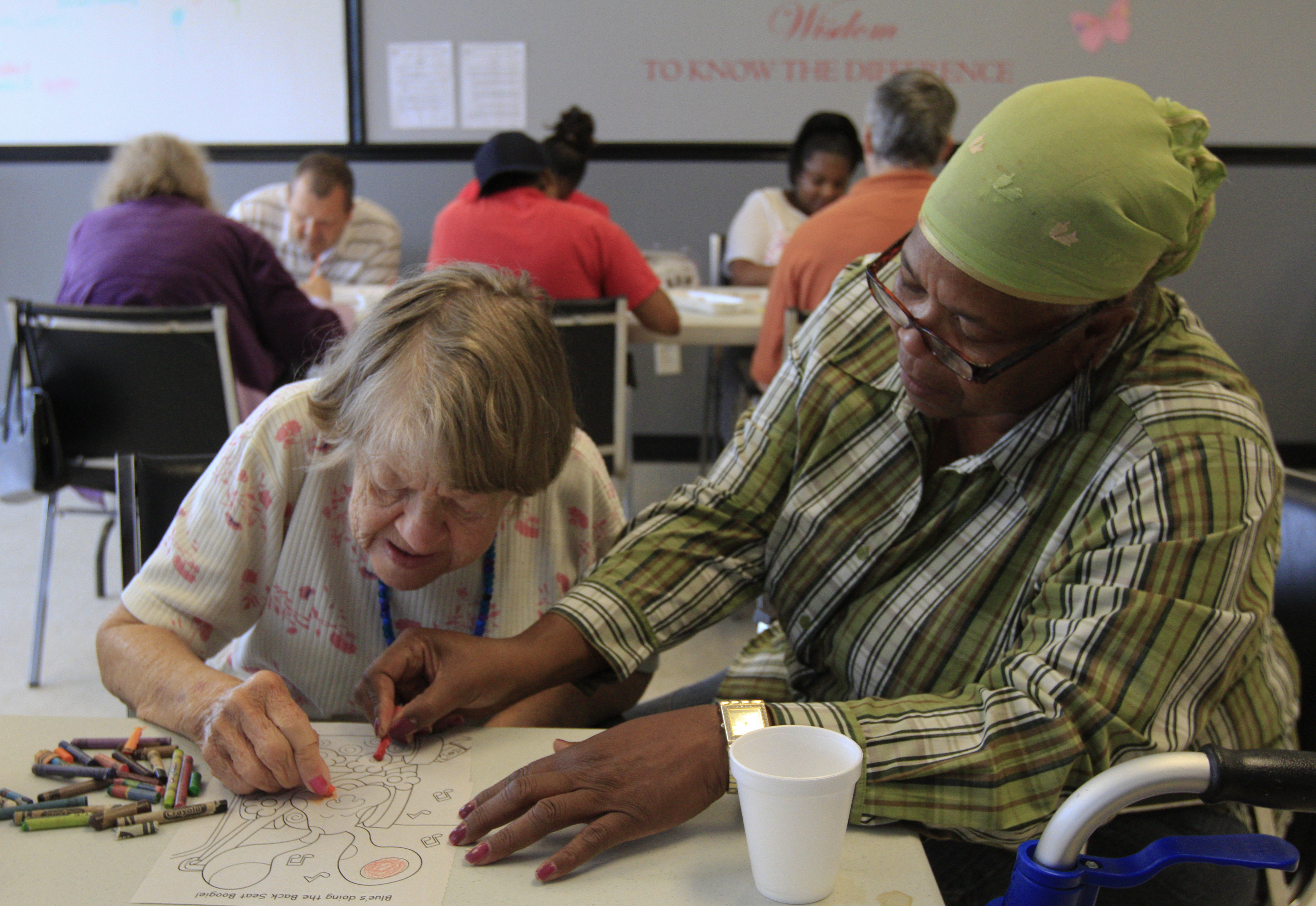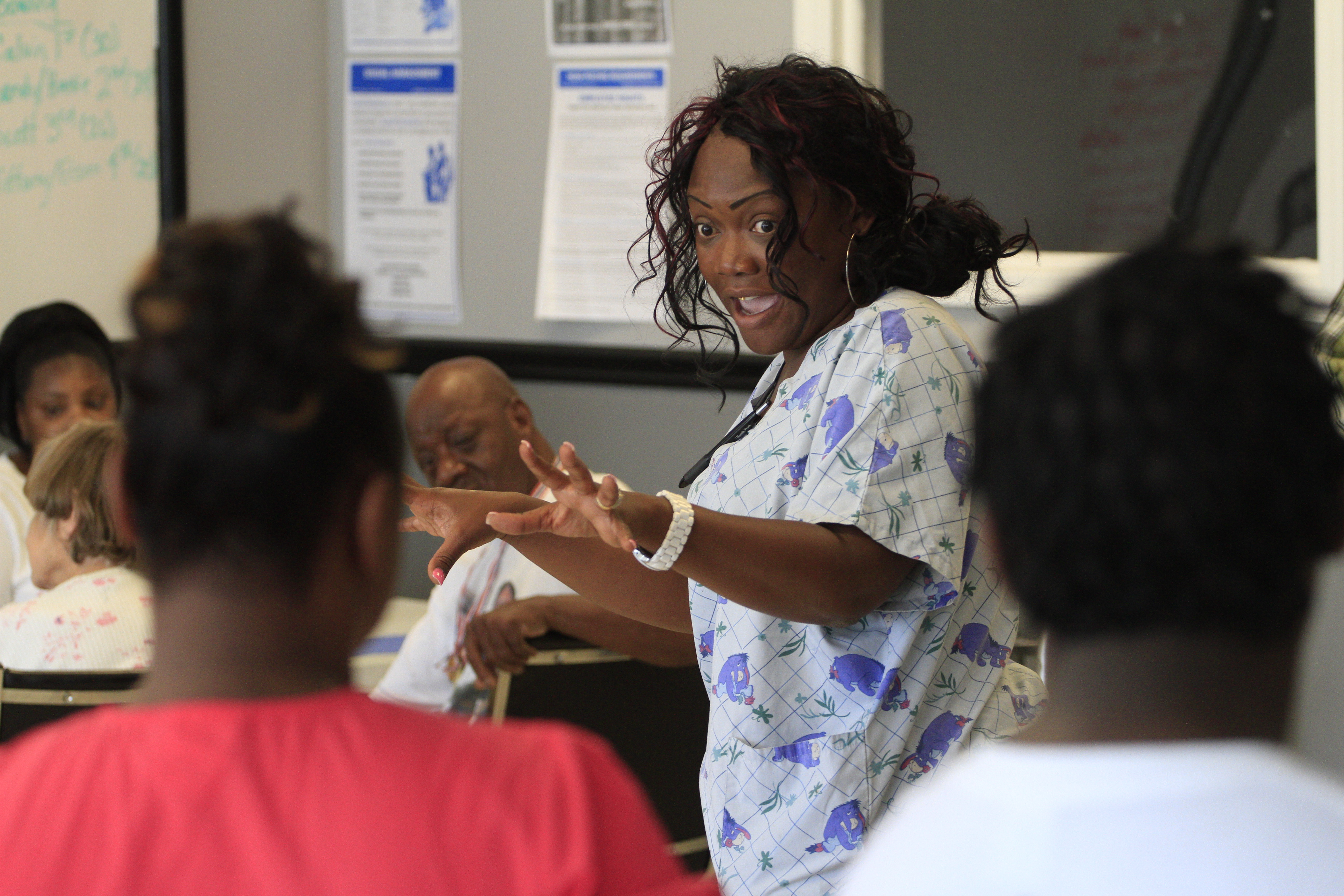IF YOU GOThe seventh annual Pearl White Gala will be held at 7 p.m. Sept. 8 in the Chattanooga Convention Center. General admission is $60. Funds provide scholarships for low-income seniors' services such as adult day care, in-home care and assisted living services. For more information, go to www.sharonseniorservices.com or call 423-698-2611IF YOU GOA senior expo is scheduled 11 a.m. to 3 p.m. Sept. 7 at Second Missionary Baptist Church. The event will include venders and several speakers discussing elderly care options. Vending space is $150.BY THE NUMBERS• 23,705: People served by TennCare's long-term care system• $1.1 billion: Tennessee's financial share for long-term elderly care per year• 321: Number of Tennessee nursing homes• 11: Nursing homes in Hamilton County• 1,091: People in nursing homes in Hamilton County• $80,000: Average cost per year for nursing home care nationallySource: Kaiser Health News, carepathways.comSENIOR CAPABILITIESActivities of daily living used to determine Medicaid funding• Personal hygiene and grooming• Dressing and undressing• Self-feeding• Functional transfers -- getting into and out of bed or wheelchair, getting onto or off toilet, etc.• Bowel and bladder management• Ambulation -- walking without use of an assistive device such as a walker, cane, or crutches or using a wheelchairSource: TennCare
It's going to be harder for low-income seniors to qualify for a nursing home, and some people may get less money for adult day care or home care, according to TennCare officials.
Before this summer, some elderly people could qualify for up to $55,000 for nursing home, adult day care or assisted living care because they couldn't groom themselves, one of several standards TennCare uses to measure a person's ability to handle the activities of daily life.
But as of July 1, being deficient in one activity is no longer enough to qualify for nursing home care and receive the maximum funding. TennCare will take an overall assessment of a person's level of need before allocating the highest level of funding, officials said.
Low-income seniors who don't receive the highest level of funding will get up to $15,000 a year that may go toward home health care or an adult day care facility, said Kelly Gunderson, TennCare director of communications. People who believe they need more money may call their health care coordinator for another health assessment, she said.
DeNessa Cartwright, owner of Serenity Adult Day Care Center, said she's concerned that $15,000 will not be enough funding.
"A person can be lacking in only one ADL, but that one ADL could be so major that you still have many needs and need maximum funding," said Cartwright.
She said she already knows that $15,000 will not be enough to cover expenses for her adult day center. Her center gets about $80 a day for each client. That pay comes to $10 an hour for eight hours, but because many clients have caregivers that work 12-hour shifts, her adult day center already gives more hourly care than for what it is paid, she said.
By increasing the requirements to receive the highest level of financial support, TennCare will save $47 million a year. The money will be redistributed to serve more people, according to TennCare officials.
"This is a critical next step in helping the state continue to expand access to home-based care, delay and/or prevent the need for nursing facility placement, when appropriate, and rebalance the state's long-term care system for the elderly and adults with physical disabilities," Gunderson said.
But Tennessee Justice Center Executive Director Gordon Bonnyman said he is concerned that efforts to save $47 million from the TennCare budget will leave the state unable to adequately serve the seniors it is intended to help.
"It just defies common sense that you're going to actually be able to maintain everybody, meet those needs and yet take $47 million out of the budget once used to pay for those services," Bonnyman said.
TennCare officials said 40 percent of elderly people receiving benefits before 2009 spent less than $15,000 per year.
Caregiver Maggie Pickett will be grandfathered into the program but said she already knows that $15,000 will fall short of caring for her family. At 67, Pickett is the caregiver for her 65-year-old sister and her 43- and 23-year-old mentally disabled nieces.
"It would be really bad if that happened," said Pickett. "I wouldn't be able to take care of my sister and nieces. I'm a widow on a fixed income."
The fee for her sister to attend Sharon's Adult Day Care Center eight hours a day, five days a week is about $20,000 a year, she said.
Dr. Melinda Henderson, executive director of United Healthcare Community Plan of Tennessee, said TennCare's requirement change is a first step toward building a sustainable model for long-term care that enables people to live healthier lives. Other states are watching Tennessee because they also are seeking ways to help people maintain independence in the community through home-based programs.

